When I realized last January that I’ve never blogged my favorite books of the year, I was horrified, and I immediately put together a few recommendations from 2016. Thankfully, this inspired me to keep much better track of what I read in 2017, and I’m happy to share my favorite reads of last year.
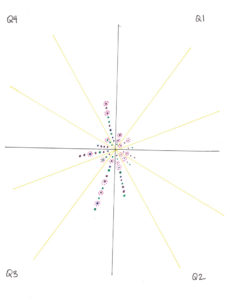
I began the year with an ambitious goal to read 100 books in 2017. I fell far short, clocking in at just 65. These were a mix of Kindle reads (mostly bargain chick lit novels that were unremarkable except that they gave my mind something to decompress with), Audible audiobooks, and traditional printed books, both fiction and nonfiction. I began this best-of-2017 list by reviewing my Excel spreadsheet (#nerdsunite) and creating a nifty visualization of my year in reading (see picture). Clearly, I read in June, July, and December. Not so much the rest of the year. This makes some sense, no?
Without further ado, here are my favorite books I read in 2017 (not, let’s be clear, my favorite books published in 2017). There are twenty of them, so pace yourself.
Best Fiction
- Commonwealth, by Ann Patchett, was a book club read in June, and it was the best book by Patchett that I’ve read. Others have described this novel as more autobiographical than her other work, and the characters felt so much more real to me. I really enjoyed it, and I found the story and characters lingered with me long after I put the book down.
- Big Little Lies, by Liane Moriarty. Before it was made into an HBO miniseries, I purchased this book (on the Kindle, so it’s an eBook best read) because I’ve adored every Liane Moriarty novel I’ve read. When Blake, then Doug, binged on the HBO series and wanted me to watch, I knew I had to make reading the book a priority, which I did in August. Once I’d finished, I exclaimed a bit of surprise to Doug about something that happened somewhat late in the book, and he admonished me for spoiling something we don’t yet know from the TV series. Whoops. I’ve only watched one or two episodes of the TV series, but I can assure you that the book is far, far better.
- The Fifth Letter, by Nicola Moriarty. To be honest, I probably bought this eBook originally because I thought it was a Liane Moriarty novel, but I gave it a shot even after I realized it was a different Moriarty (side note: Nicola is Liane’s younger sister). The thing I loved about The Fifth Letter was how four friends from school reconnected, with all of their baggage and drifting apart, and found a way to become closer. To be sure, it was a bumpy ride, but I really enjoyed this book and couldn’t put it down. I read it in November, on roughly day one of Thanksgiving break, when I probably should’ve been grading. (Whoops.)
Best Nonfiction, International Affairs sub-category
Many of you know that I’ve become rather immersed in thinking about the most vulnerable in the world over the last two years. Being tasked with teaching World Politics and wanting to do it in a way that keeps my interest did that to me. Here are some of the most moving books I read this year to help me teach this course better.
- The Lonely War (Iran), by Nazila Fathi. I loved this book so much because it gave me a new perspective on the more moderate (or even progressive) voices in Iran today, as well as how the Iranian diaspora continues to hope for political change in their home country that would allow them to remain in closer touch with the people they love still in Iran. I think this book is necessary reading for anyone who wants to understand Iran, and I assigned it to my World Politics (honors) students in the fall semester. I read it originally in early February. (See also books by Shirin Ebadi, an Iranian who won the Nobel Peace Prize for her work.)
- A Hope More Powerful than the Sea: The Journey of Doaa Al Zamel (Syria), by Melissa Fleming. Every single person should read this book. If I could send everyone I know a copy, I would. It traces the story of a young woman terrified of the sea (she never learned to swim) as she makes her way from Syria, to Egypt, across the Mediterranean, trying to find a stable life with her husband. This story will break your heart and help you understand the very real challenges faced by those in Syria. Do you stay in a country where you have zero quality of life and risk death with every outing for food (which is scarce), or do you flee and be treated as a sub-human by a world unsympathetic to your plight? There is no good option. If you don’t want to read the book, please watch Melissa Fleming’s TED Talk about Doaa’s story.
- A Very Expensive Poison (Russia), by Luke Harding. You may not realize you’re reading nonfiction and not a spy novel if you pick up this book by Luke Harding. It reads with the pace and intrigue of a thriller, but it’s unfortunately all true. This book tells the story of the poisoning of Russian whistleblower-turned-British informant Alexander Litvinenko in London by two unlikely assassins. I hear it’s being made into a movie, so get the real scoop now before Hollywood finds a way to distort it. (Read my blog about this book.)
- No Good Men Among the Living (Afghanistan), by Anand Gopal. Had I read this book earlier in the year, and not in July, I would’ve made it the first narrative nonfiction book for my honors World Politics students to read. It was profound; it was infuriating; it was heartbreaking. Gopal writes with compassion, fearlessness, and gravity. I didn’t know how much I didn’t know about our involvement in Afghanistan until I read this book. This is another I think everyone — everyone — should read. I’ve spent hours and hours trying to figure out how to get Gopal to my campus to share his insights.
- The Girl with Seven Names (North Korea), by Hyeonseo Lee. My fascinating with North Korea continues unabated, and the accounts of those who have escaped and found refuge elsewhere are both heartbreaking and hopeful. This one particularly attracted my attention when I saw it has 1,882 (and counting) Amazon reviews and fully 5 stars. That rarely happens, and the book deserves it. Lee’s courage and tenacity are the stuff of legends. As you read this book, you won’t believe what she endured. You’ll feel humbled by the so-called “challenges” of your life … but that’s really not the point. No, the point of her book is how resilient the human spirit is, how strong we can be when our lives are on the line. Ultimately, this is a profile in courage, and I loved it when I read it at the beginning of my December holiday break. (You can also watch her TED talk here… but there is a LOT more detail in the book, and I wouldn’t watch the TED talk in lieu of reading it. Just whet your appetite, then go read it.)
Best Nonfiction, American politics sub-category
I don’t tend to read a lot of polemic political work, but I do enjoy memoir-y books and things that make me imagine a world where people can disagree without hating one another. I long for that.
- The Snowden Files, by Luke Harding. I read this only because I realized it was the basis for the Oliver Stone movie, Snowden, and I figured Harding’s perspective would be interesting. I was right; this book reads quickly and keeps your interest. I’ve become rather fond of Harding’s writing style. This is a reasonably fair account of Edward Snowden’s actions and the results of them. It’s less of an advocacy piece than Glenn Greenwald’s account (which I enjoyed, particularly the first couple of chapters). Regardless of whether you think Snowden did the right thing, understanding his actions, his stated motivations, and their impacts is critical if you want to have a reasoned debate on the virtues and pitfalls of privacy in a digital age.
- Who Thought This Was a Good Idea? And Other Questions You Should Have Answers to When You Work at the White House, by Alyssa Mastromonaco. I listened to this as an audiobook, and I would recommend doing the same. Mastromonaco narrates, and her voice conveys so much more than just the words. This tale of her work as an advance team / logistics planner for President Obama is hilarious, insightful, and just plain fun. I thoroughly enjoyed it. (Far more so, I have to say, than Reggie Love’s Power Forward in the same vein.)
- Debriefing the President: The Interrogation of Saddam Hussein, by John Nixon. Okay, this book was just plain fascinating. I loved it. Loved isn’t strong enough. I found it to be thought-provoking, utterly compelling, and well-written. Nixon is a former CIA senior analyst who was the lead on questioning Saddam Hussein after his capture by American forces. For someone (Hussein) who we thought we understood so well, Nixon reveals how two-dimensional our portrayal of the leader was. I will probably read this book several more times over the rest of my life. It was just a wonderful little reminder of how people are almost always more complex than our soundbite-infused media world typically can convey (says the recovering journalist). (Read my blog about this book.)
- Three Languages of Politics, by Arnold Kling. You can buy this book, but you can also read it for free as an eBook from Libertarianism.org. The short book sets out a theory of the three dominant themes in political discourse and how they prevent us from ever really having a useful conversation. Kling argues that conservatives emphasize Western values and moral virtues/traditions over those who are indifferent to these things; liberals/progressives emphasize the protection of the oppressed and the under-privileged; libertarians speak in terms of individual rights over government intrusion on personal choice. When we take an issue and approach it with these different ‘languages,’ we talk right past one another. It’s a great, resonant, and timely read, and one I encourage picking up.
Best Nonfiction, everything else sub-category
There was a time not that long ago when 90% of what I read was fiction, but as you can see … times have changed! Here are a few other nonfiction books I read and loved this year.
- Shrill by Lindy West and Things No One Will Tell Fat Girls by Jes Baker. Every single woman needs to read these two books, no matter your political or personal perspective, your size, your inclination, your experiences. These books speak hard, brave truths about the lived experiences of women in the 2010s. I love Lindy and I love Jes and I think they are brilliant, hilarious, and brave. I want to be more like them. (Read my blog about Jes’s book.)
- In the same vein, Hunger: A Memoir of (My) Body, by Roxane Gay is a brave telling of what it’s like to live through sexual assault and do everything in your power to make yourself as unattractive as possible to prevent future harmful male attention. It’s very difficult to hear Gay grapple with her life’s experiences, and I don’t always appreciate her pathologizing of her weight. But I was honored to read (well, listen to) her story and connect with the raw and powerful emotions she expresses. This book is hard. So, too, is being a woman in a larger body in 2017.
- How We Learn by Benedict Carey and Teaching with Your Mouth Shut by Don Finkel. I read a number of teaching-and-learning books this year, but these were the best. Carey’s book summarizes a whole lot of the research on how people think, learn, and remember. It’s a wonderful, readable synthesis of a LOT of great information. Finkel’s book fundamentally made me reexamine the assumptions I make in teaching my classes. At several points, I had to put the book down and stare off into space to think. I put several of his suggestions into action this fall, and in the spring semester, I’ll be leading a book club of my colleagues at Chattanooga State in discussing his ideas. This book will be with me for a long, long time. Educators — read it. Seriously. (But skip all the Iliad stuff if you, like me, yawn at Homer. You won’t miss anything critical.)
- The Magnolia Story, by Chip and Joanna Gaines. I’m not quite the huge fangirl of the Gaines family as I know many others are, but I listened to this as an audiobook and LOVED hearing Chip and Joanna banter, rather than just reading it on paper. If you can listen to this, and you have any love at all for their work on Fixer Upper (HGTV), you will love this audiobook. I’m not sure I’d recommend it in print, though.
- The Rules Do Not Apply, by Ariel Levy. I also listened to this one as an audiobook (read by Levy), and ohmygoodness itwasSOgood. It’s an incredible story. An unbelievable story. An incredibly strong and tenacious woman. And her voice just brings the whole thing to life in a visceral way. I would recommend this as an audiobook, but if you don’t listen to things, read it anyway. This one is worth the time regardless of the medium.
Honorable Mention (not on graph): Best Chick-Lit Series
There were many great contenders, but I give this to the Willoughby Close series by Kate Hewitt. There were five books in this series, and I devoured each of them over the summer at breakneck speed. Highly recommended for those who like breezy and heartwarming “women’s fiction.”
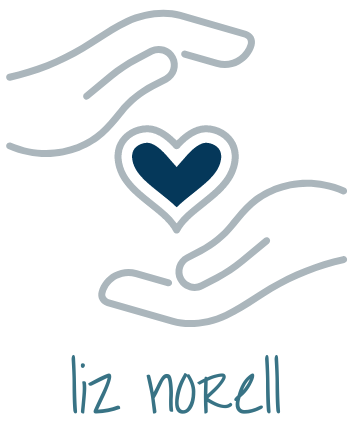
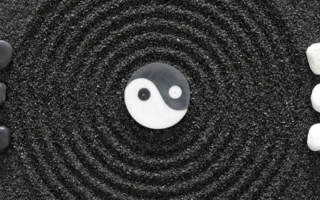
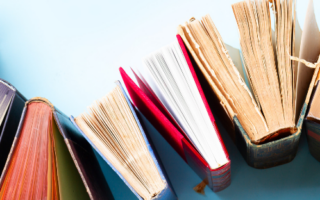
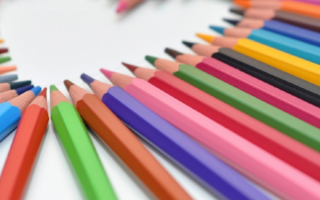
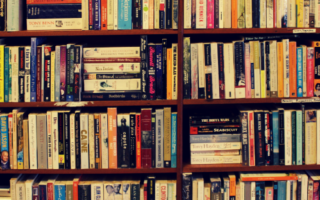

I loved Big Little Lies as well. Other top fiction for me this year includes The Hate U Give by Angie Thomas, narrated by Bahni Turpin., and Small Great Things by Jodi Picoult, narrated by Audra McDonald, Cassandra Campbell and Ari fliakos. One more audiobook gem from this year is The Tea Girl of Hummingbird Lane by Lisa See, narrated by many folks. I listen almost exclusively to fiction, but will explore a couple of your nonfiction recommendations,